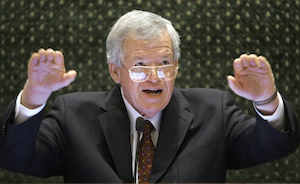HOW LONG?Under the state's records retention guidelines, here's how long different kinds of documents are recommended to be maintained:* Utility billing reports -- three years* Utility complaints by customers -- five years* Accident reports -- four years, unless needed for statistical reports* Incident reports -- misdemeanors two years, felonies 16 years* Parking tickets -- three years* City contracts -- seven years after termination of contract* City employee emails -- emails related to contracts, seven years; emails related to tort litigation, two years; emails related to personnel status of employees, five years* Fire safety inspection and similar reports -- until a new inspection is done or three years* Citizen service complaints -- five yearsSource: The University of Tennessee's Municipal Technical Advisory Service
A $2.6 million taxpayer-funded project is under way to digitize hundreds of thousands of city records - a project that Mayor Andy Berke's staff says will increase government transparency and efficiency.
Yet since the City Council authorized the funds in February, the city attorney's office has been simultaneously studying what records the city must legally retain and how many they can shred -- potentially destroying decades of old documents.
Those documents could include old discrimination complaints, incident reports and utility billing records -- the latter of which have been employed recently during months of scrutiny into the city's streetlight billing program.
City Attorney Wade Hinton said his office is trying to create a more efficient government by modernizing records and following the recommendations of the Municipal Technical Advisory Service, or MTAS, that gives suggestions on how long to retain city records.
But asked repeatedly how many records the city potentially could destroy, Hinton would not say.
Before the city makes any decisions, attorneys will bring a recommendation to the City Council and the mayor's office and give the public time to weigh in, he said.
Berke ran his campaign on a promise of transparency and open government and recently signed an executive order for a city open data policy. His staff plans to put the city's budget documents on a public website by fall as part of the budgeting for outcomes process that ties taxpayer funding to results.
Berke's senior adviser, Stacy Richardson, said creating a new public records retention policy is part of being open and could save taxpayers money. She said the city will keep the public informed on what records will be kept and which ones should be put in a public server for residents to access on their own. A records policy, she said, is complicated and takes time to study.
"The city is 175 years old and has been accruing documents for all those years. We've got to have a policy," she said. "We're not going to go down to a storage building and throw a match in there."
But several Chattanooga residents who have fought the city for information criticize the decision to destroy any public records that are part of the city's history and could potentially be used to hold government officials accountable.
"It just seems so wrong that the city would use taxpayer dollars to destroy records," said Rebecca Little, who recently won a public records lawsuit against Chattanooga.
In February, an appeals court judge ruled that the city had to pay $70,000 in attorney fees after officials "willfully" withheld records from Little. She had requested annexation records dating back to 1972. She said she wanted those records to prove the city hadn't implemented sewer and road plans promised 40 years earlier when the area was annexed.
The City Council voted in 2002 to follow the MTAS guidelines for keeping records, but Richardson said city officials didn't follow through.
The basement of the city's annex building is stacked high with documents, some decades old. Some are stored on microfiche, said Chief Information Officer Brent Messer. Digitizing records would give the public quicker access to them, he said.
Don Lepard, founder of streetlight vendor Global Green Lighting, also questions the need to get rid of documents.
Lepard has been caught in a three-way struggle with the city and its utility EPB, over a contract to install streetlights. He has said he found discrepancies in EPB bills for streetlights through public city records.
Lepard recently filed an open records request for EPB billing records dating back to 2000, and he requested the oldest records retained even on microfiche. As a result, he said he just can't understand why the city would want to get rid of records that could help them with any future discrepancies.
"It boggles me," Lepard said.
Contact staff writer Joy Lukachick at jlukachick@timesfreepress.com or 423-757-6659.


